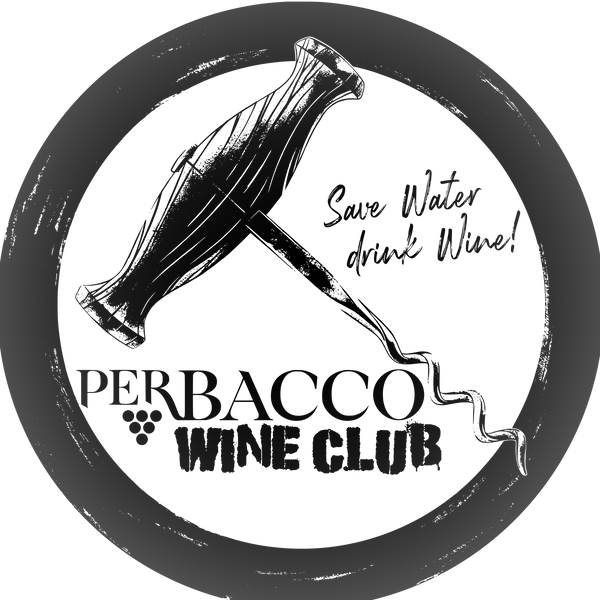Hello everyone, today I'll talk about Biodynamic farming and how this kind of methods are now commonly used here in Tuscany and all over the world. The word 'Biodynamic' might sound very naive, I remember the first time I was told about it I suddenly pictured a wizard doing some magic tricks in the vineyards...or maybe a guy with dreadlocks walking barefoot in a vineyard with his 10 dogs while smoking a joint. It is actually none of those things, I was the naive one thinking that this method would be a 'new age' silly idea because these techniques were used by my grandfather before chemical fertilizers and pesticides were even invented or sold in Tuscany! After reading more about this method, I was then convinced to go and check with my own eyes and I saw some workers burying cow horns full of manure at Avignonesi estate in Montepulciano: at first sight, it looked a bit gross to me to be honest, but I was stunned by the care and the respect these people have for the vines and for the soil!
Now, let's go a bit more specific and technical:
Biodynamic wines are wines made employing biodynamic methods both to grow the fruit and during the post-harvest processing. This kind of wine production uses organic farming methods (e.g. employing compost as fertilizer and avoiding most pesticides) while also employing soil supplements prepared according to Rudolf Steiner's formulas, following a planting calendar that depends upon astronomical configurations, and treating the earth as "a living and receptive organism.
Biodynamic methods are used in viticulture in many countries such as France, Switzerland, Italy, Spain, Austria, Germany, Australia, Chile, South Africa, Canada, and the United States. In 2013 over 700 vineyards worldwide comprising more than 10,000 ha/24,710 acres were certified biodynamic. A number of very high-end, high-profile commercial growers have converted recently to biodynamic practices. According to an article in Fortune, many of the top estates in France, "including Domaine Leroy in Burgundy, Château de la Roche-aux-Moines in the Loire, Maison Chapoutier in the Rhone Valley, and Domaine Zind-Humbrecht in Alsace," follow biodynamic viticulture. For a wine to be labeled “biodynamic” it has to meet standards laid down by the Demeter Association, an internationally recognized certifying body. In Montepulciano Avignonesi was converted into biodynamic after the estate was took over by Mrs Vi
Biodynamic agriculture is based on the work of Rudolf Steiner (1861–1925), who gave Agriculture Course in 1924, predating most of the organic movement.It includes ecological principles, emphasizing spiritual and mystical perspectives. Biodynamics aims at the ecological self-sufficiency of farms as cohesive, interconnected living systems.
Some grape growers who have adopted biodynamic methods claim to have achieved improvements in the health of their vineyards, specifically in the areas of biodiversity, soil fertility, crop nutrition, and pest, weed, and disease management. For example, the late Anne-Claude Leflaive of Domaine Leflaive estate in Burgundy claimed that the use of biodynamic methods saved a badly diseased vineyard, to the point that it now produces some of her most highly prized wines.[5] A long-term study of one California winery found that improved quality for both biodynamic and organic could not be explained. This study in different vineyard blocks at a commercial vineyard in Ukiah, California found no difference between biodynamic methods with general organic farming methods with respect to soil quality, nor in the yield per vine, clusters per vine, and cluster and berry weight. However, one of the authors, Leo McCloskey has made the case that consumer quality scores, 100-point scores, are expected to be higher for both biodynamic and organic over traditional farming.
Biodynamic winemakers claim to have noted stronger, clearer, more vibrant tastes, as well as wines that remain drinkable longer. Biodynamic wines are more "floral", according to Spanish biodynamic vintner Pérez Palacios.Biodynamic producers also claim that their methods tend to result in better balance in growth, where the sugar production in the grapes coincides with physiological ripeness, resulting in a wine with the correct balance of flavor and alcohol content, even with changing climate conditions.
In a blind tasting of 10 pairs of biodynamic and conventionally made wines, conducted by Fortune and judged by seven wine experts including a Master of Wine and head sommeliers, nine of the biodynamic wines were judged superior to their conventional counterpart The biodynamic wines "were found to have better expressions of terroir, the way in which a wine can represent its specific place of origin in its aroma, flavor, and texture."Critics caution that such comparisons of wines of the same type need to be controlled for differences in soil and subsoil, and the farming and processing techniques used.
